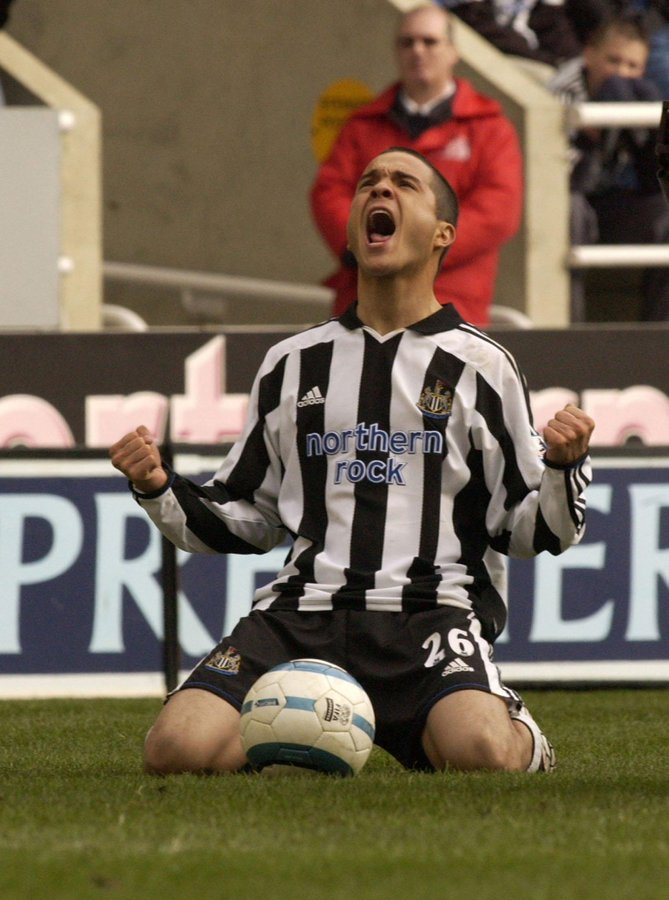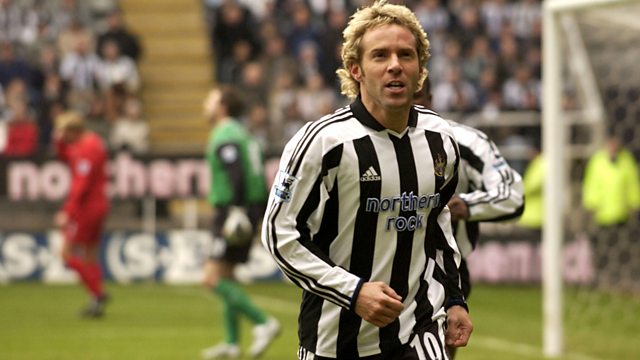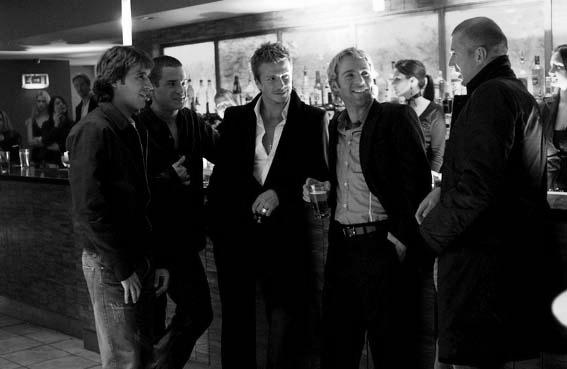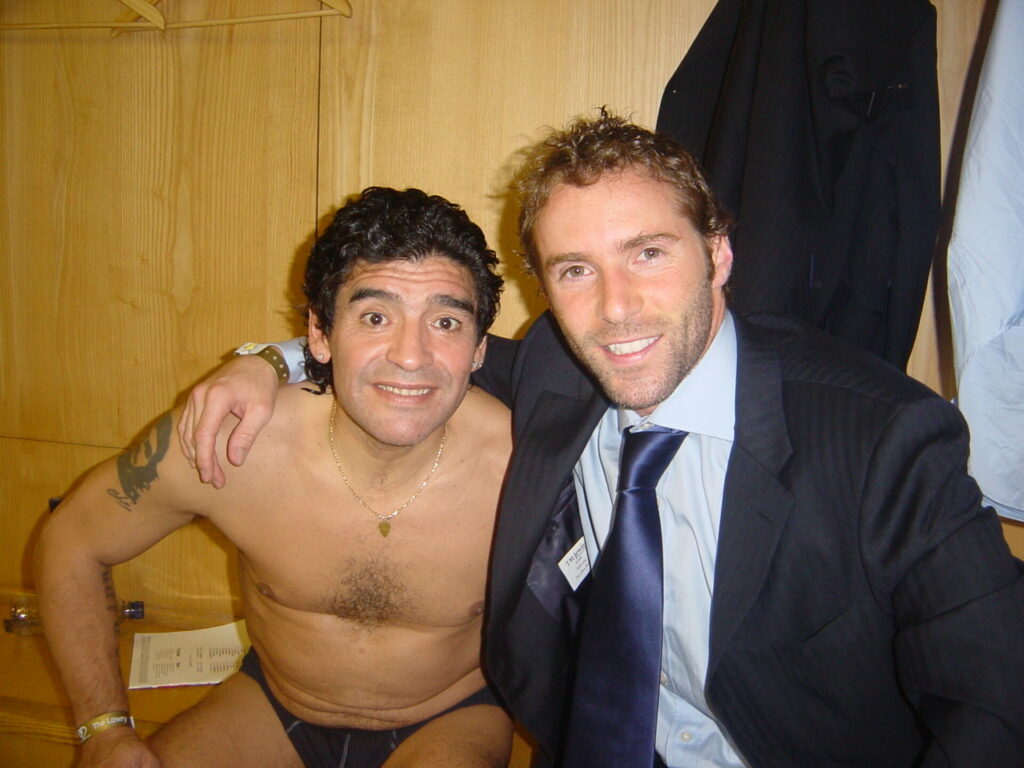‘Goal!’ at 20: The story of the football film that became a cult classic
To mark its 20th anniversary, Goal! stars Kuno Becker and Alessandro Nivola and scriptwriter Adrian Butchart tell us all about creating one of the most beloved football films ever, and its lasting legacy
By Nick Reilly

Mention the name Santiago Muñez to nearly any discerning football fan who came of age in the noughties and you’ll likely get the same response. They’ll passionately tell you about the Mexican superstar who transcended his impoverished roots in Los Angeles to sign for Newcastle United, before an eventual transfer to Real Madrid where he scored a key equaliser in the team’s Champions League final win against Arsenal.
But there’s just one unusual thing: Santiago is entirely fictional. He was played by Kuno Becker in Goal! which celebrates its 20th anniversary today and still ranks as one of the most beloved football films of all time. Fans instantly fell in love with Santiago’s story, which felt incredibly authentic after Newcastle came on board to lend their heavy involvement to the project and permitted cameos from the likes of Alan Shearer, as well as allowing the cast to train with the entire squad. Such is the film’s impact that a number of future Magpie stars admitted that their knowledge of the club was solely based around the film.
“I never thought it was going to be this successful,” Becker tells Rolling Stone UK from his home in California. It’s a huge cult movie and I’m always getting messages from people all over the world and especially Latin people who have the same dream of becoming a professional football player. It wasn’t my dream, but it’s the same dream that a lot of people across the world have.”
The project began life when British scriptwriters Adrian Butchart and Mike Jefferies got wind that worldwide governing body FIFA was looking to create a film that would capture the experience of the beautiful game in all its knotty glory. The project truly became a reality, Butchart explains, when a significant chunk of financing from Adidas came to the table.
The pair even oversaw an early iteration of the film which saw Michael Winterbottom behind the camera. The legendary British director shot a snowy game sequence in Tromsø and had cast Andor star Diego Luna as his Santiago and venerable Swedish star Stellan Skarsgård as gaffer Erik Dornhelm. All three of those departed the project after Winterbottom left due to apparent creative differences with Jefferies.
But perhaps the biggest difference between idea to reality is that Jefferies, a die-hard Liverpool fan, had anticipated that Santiago would become a hero of the Kop. The team was sponsored at the time by Reebok, an understandable stumbling block for the big backers at Adidas. It was decided, then, that Santiago would head to St James’ Park instead, with Butchart and Jefferies joined on story duties by legendary British sitcom writers Dick Clement and Ian LaFrenais.
“Goal! is this fish out of water story and it’s about a guy who is looking for somewhere to belong and finds it in the most unlikely place,” explains Butchart. “But then we had all the lovely quirks of Newcastle and the incredibly special dynamic that the city has in being a one-club town. Nearly every other city in Britain has got more than one [football] club. Manchester’s got two, London’s got a countless amount, and we even included a line in the film about that. It meant that when we got to Newcastle and started hanging out with people at the club and the other Geordies, we really saw that this is a warm and welcoming place where football is the main event of everybody’s lives.”
In understanding that, Chelsea fan Butchart and Jefferies made a film that just got football, and why fans over the world remain bewitched by the beautiful game. Santiago’s trials and tribulations in making the squad felt similar to any ‘wonderkid’ who had been mentioned in hushed tones at your own club, while the actual football sequences – including the iconic match scene set to Kasabian’s ‘Club Foot’ – still rank as some of the most realistic of the sport ever committed to film. It may be slightly cheesy and melodramatic at points, but Escape to Victory this certainly ain’t.
“When you stand at the side of a football pitch and you watch the match being played, it’s so different from when you watch it on television and you have this sanitised version of what’s going on,” says Butchart. “That’s what we wanted to capture. It’s hard, fast, aggressive, and run by guys running at Olympic speeds who are up against other guys who want to bring them down.”

He adds: “We were just trying to be true to what we saw. We wanted to show the glory, but also the huge risk that these players were taking – the idea that one injury or one bad game can be career-ending.”
For Becker, that meant undergoing training sessions that would allow him to be “at least kind of bad, because I was horrible at football” and, like Santiago, transferred from the warms to California to the unpredictable climes of the UK.
“There was this sequence that we shot in London when I was supposed to be doing the trials, and I remember I couldn’t feel my legs,” he admits. “I don’t know how I was actually running.”
Another key part of the story was understanding that every star player needs a right-hand man. A Son to their Kane. A Rooney to their Ronaldo. Or in this case, a Gavin Harris. Played by American star Alessandro Nivola, he was a cocky goalscorer with peroxide blonde hair, and an impressive accent taken from a number of locations in the south east of England. Harris truly felt like an amalgam of the brash but loveable characters that existed in the football landscape of the noughties.

One moment in the film, which felt especially true of the era, saw Gavin and Santiago’s face slapped on the cover of The Sun after a boozy night out. But for die-hard football fan Nivola, it was largely a chance to leave out the stuff of football fantasy.
“The truth is that I did the movie because I was such a football fan and I accepted the role before reading the script when they told me that I was gonna get to train for two weeks with Alan Shearer and the other first team guys at Newcastle,” Nivola grins on a zoom call from New York.
He adds: “I had no expectations for the film at all. It was completely off the Hollywood radar and my agents didn’t even know about it because it was being financed outside the studio system. They had no idea what this thing was. It was this hugely ambitious project that was being planned as a kind of trilogy on a pretty big budget for a sports film and and none of the money was coming from the traditional sources, due to the Adidas backing. I went into it purely out of passion for the game itself and what ended up happening, most importantly for me, was that the role ended up being one of the most enjoyable characters I’ve ever played in a film.”
Recalling how he linked up with the Newcastle team for a training session, Nivola remembers feeling like “an alien from another planet being dropped down in their midst and they didn’t know what the fuck to make of me”.
That understandable sense of confusion got even wilder when scenes shot during a real-life Newcastle home game against Liverpool saw Nivola and Becker jumping over the side advertising boards to embrace their teammates at full time, giving the impression that they’d just played a full 90 minutes.
“Kuno and I would leap out and run onto the pitch and we’d been sprayed down with water to look like we’d been sweating for 90 minutes and started coming up to the players and hugging them like you do at the end of the match,” smiles Nivola. “I remember Steven Gerrard coming up to me and I genuinely looked like a footballer, but they got close and just realised they had no idea who I was!
“They were completely taken aback until the gears started turning and they realised ‘Oh, we’re supposed to play along with this shit’. Then they started hugging me and laughing about how fucking absurd it was. I’d be clapping to the fans as well, and they had no idea who I was.”
A complete contrast, then, to the warmly received sequel Goal 2! which saw Santiago and Gavin move to Real Madrid. When Nivola entered training with a team of Galacticos that included Ronaldinho, David Beckham, Zidane and Roberto Carlos, the cultural imprint of the first film meant that these legends knew exactly who he was.

“I joined up with them on their far east pre-season tour and I was immediately invited in,” he remembers. “We toured around Tokyo, Beijing and they’d include me in all of the training sessions, and I’d come out on the pitch for the pre-match warm-ups, and, in fact, they tried to sign me.”
Yes, you’ve read that correctly. Alessandro Nivola nearly became an actual Galactico. “They tried to sign me for a dollar in order to allow them to substitute me onto the pitch at one of the games to film me playing,” he explains. “I was a hair’s breadth away from having been signed by Real Madrid, but there was some insurance issue that made it complicated. But look, I went to nightclubs with them, and I was completely embedded.”
Even if Nivola never quite signed for Fabio Capello’s side, the experience allowed him to strike up a great friendship with Steve McManaman, with whom he still holidays in Majorca and, incredibly, the chance to play alongside the late, great Diego Maradona.
“I ended up playing in the first Soccer Aid with Sir Diego,” grins Nivola, before showing me a photo of the assembled squad. “There’s Diego, Zola, Peter Schmeichel, Ruud Gullit and I’m in there too. That’s all a result of me saying yes to Goal!”

The trilogy reached its end with the much-maligned Goal! 3, which happened without the involvement of Nivola and Butchart and went straight to video. Becker, who starred in the film, diplomatically describes the third outing as “not great”, but says he’s developed a script for a return to playing Santiago in the future, which has proved difficult to get off the ground. He’s also pre-occupied with the launch of his own animal shelter, as shown by the small dog that leaps on his lap during our call.
Butchart, meanwhile, could yet return to the football film arena. He’s the man behind the long-gestating Jamie Vardy biopic which has been mooted ever since Vardy capped off a remarkable rise from non-league football to become Leicester’s leading man in their fairytale 2016 Premier League win.
“Jamie’s story is incredible. I fell in love with that story and I still do love it, so I would not be surprised to see it appearing back in the press reasonably soon and there might be some kind of announcement about that,” he teases.
And as for Nivola, he’s happy with the fact that Gavin Harris will always be a key part of his life. “Something happened in the intervening years where it slowly developed this cult status and it’s really hard to identify the reason for that, but I think part of it was that the first one was a really classy outfit,” he reflects.
“Look at the people involved in it, Dick Clement and Ian LaFrenais wrote The Commitments. Actors like Stephen Dillane, Stephen Graham and Anna Friel [who starred as Santiago’s girlfriend Roz]. There was a classy bunch of people making it and I think people have started to realise it’s a great movie and as the years went by I started getting recognised for it more and more.”
“My daughter’s boyfriend is 15 or 16 and he wasn’t even born when the film was made, but he’s seen it,” Nivola explains. “And the movie of mine he was most excited to talk to me about was not Jurassic Park, it was not Face/Off and it certainly wasn’t The Brutalist, which won five Academy Awards. It was Goal!”
